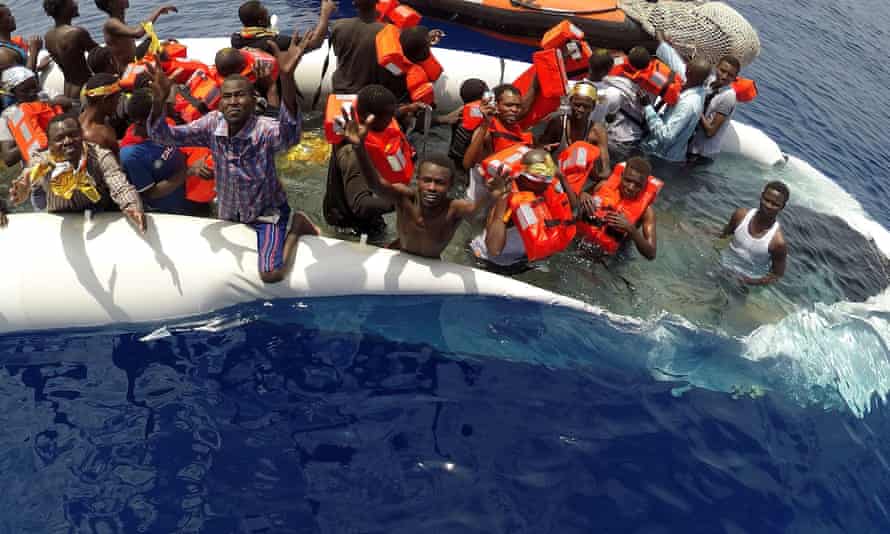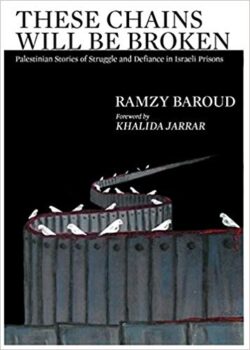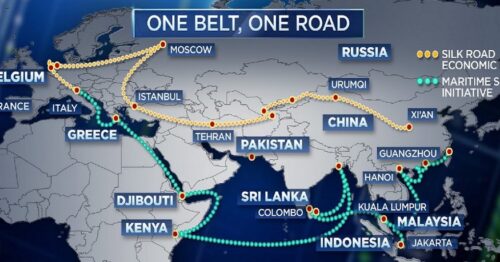The final report on the Millennium Development Goals (MDGs) concludes that the project has been ‘the most successful anti-poverty movement in history’. Two key claims underpin this narrative: that global poverty has been cut in half, and global hunger nearly in half, since 1990. This good-news narrative has been touted by the United Nations and has been widely repeated by the media. But closer inspection reveals that the UN’s claims about poverty and hunger are misleading, and even intentionally inaccurate. The MDGs have used targeted statistical manipulation to make it seem as though the poverty and hunger trends have been improving when in fact they have worsened. In addition, the MDGs use definitions of poverty and hunger that dramatically underestimate the scale likely of these problems. In reality, around four billion people remain in poverty today, and around two billion remain hungry – more than ever before in history, and between two and four times what the UN would have us believe. The implications of this reality are profound. Worsening poverty and hunger trends indicate that our present model of development is not working and needs to be fundamentally rethought.
— Jason Hickel, Third World Quarterly , Volume 37, 2016 – Issue 5
*–*
How could these two cohorts, the 85 richest and 3.5 billion poorest, have the same amount of wealth? The great majority of the 3.5 billion have no net wealth at all. Hundreds of millions of them have jobs that hardly pay enough to feed their families. Millions of them rely on supplements from private charity and public assistance when they can. Hundreds of millions are undernourished, suffer food insecurity, or go hungry each month, including many among the very poorest in the United States.
Most of the 3.5 billion earn an average of $2.50 a day. The poorest 40 percent of the world population accounts for just 5 percent of all global income. About 80 percent of all humanity live on less than $10 a day. And the poorest 50 percent maintain only 7.2 percent of the world’s private consumption. How exactly could they have accumulated an amount of surplus wealth comparable to the 85 filthy richest?

Staggering, no, the memory hole shoveling going on and perpetrated by elites in commerce, weapons, media, education, a la industrial complexes in the second decade of the 21st Century? Like plagues of locusts. Leeches two hundred worth per hominid, and the tapeworm eats the last, next and current generation like a desiccating alien of our nightmares.

The more light shining on the criminals, spotlights onto the military war lords, floodlights on the entire punishment cabal in governments, in corporations, in policing and uniformed military agencies, the more that bearing witness just peters out. It flags the average Yankee, and the doodle dandy is football, flicks and frolicking with furious caloric intent.
Welcome to the West. Then, the mind-numbing retorts to the initiation of discourse, of legitimate discussion about the ails of the world, largely set loose by the captains of industries — the military-media-legal-medical-penal-computing-financial-education-energy-AI-real estate-poison-agriculture COMPLEX. And, boy, is it never really “complex” — it’s about the art of the steal, the art of the scam, the art of the grift, the art of the toll-fine-fee-garnishment-penalty-tax-attachment set forth by the lobbies of the lords of death with the Eichmann’s of Bureaucracy greasing the skids and oiling the wheels. Keep those hedge funds going, the trains running, the profits heaping.
- “We can only take so much trauma.”
- “The human brain can’t take so much truth.”
- “Trigger Warning; The Following Stories About Wealth for the Rich and Poverty for the rest of Us Might Cause Spasms of Collective Amnesia, Anxiety, Animosity.”
- “There is no meek shall inherit the earth. We are talking about the meek and the poor inheriting the toxins, pollutants, the penury, the profound suffering inflicted upon them generation after generation by the rich and their enablers, the ultimate evil — those turning a blind eye to suffering, raping, razing, murdering.”
I’m getting it from all angles, really, the tired, the over-educated (in terms of college but not in terms of smarts). The tired middle class. Retired and one-trick phony environmentalist ponies. All those huffing and puffing and blowing down the Trump Towers, folk who are self-blinding themselves, as if bearing the truth of Biden et al, as well as bearing the weight of protecting Everything/Anything Empire, while the chorus of War Mongering Democrats a la LGBTQA-+ sing ‘Hallelujah, No More Trump’ puts them right smack where Oedipus was, exposed to the truth and overcome with shame, grief, and remorse. Poking eyes out is the least the people who follow the perverse leaders should do.
Except, their blinding is symbolic, life-long, from womb to cradle to grave, as in turning a blind eye to the roots, the very radical cause of all the suffering, the police no-knocks, the cesium floating in lungs and bellies, and a dozen other micro-particles from this or that nuclear fallout incident. Symbolic and demonstrative of the kill-for-profits Capitalism.
It is too too much for the masses — The Truth — so we all have to gather round the Zoom screen, tune into Amazon Prime, and sing, Give Peace a Chance while the world is fleeced by the billionaires, but also those millionaires (we tend to give millionaires, multi-millionaires a get-out-of-jail pass, when they too are the culprits helping spread that poisonous fallout).
Professor Bernd Grambow (co-author from IMT Atlantique) added “the present work, using cutting-edge analytical tools, gives only a very small insight in the very large diversity of particles released during the [Fukushima] nuclear accident, much more work is necessary to get a realistic picture of the highly heterogeneous environmental and health impact.”
Lockdowns for a flu virus, lockdowns for free thought, lockups for free speech, lock and loaded for the Empire, shackled to bills-mortgages-policies-ballooning debt…. BUT for fuck’s sake, we can’t lock-down the fossil fuel monsters, lock-up the Fukushima shills, shutdown the Olympics, punish and quell the military saber rattlers (read: purveyors of nuclear- chemical-bacterial-viral-digital-intergalactic weaponry).
Business as usual is a trillion easy dollars in Pandemic Profits, and a cool several trillion more with mandatory masking, Zooming, SARS-CoV2,3,4,5,6 annual vaccinations and semi-annual boosters.
Passports to their hell. Yet, when you talk to a Kamala Harris floozy, well, they get teary eyed, sing the All Spangled Banner of Buffoonery, and then tell you to hit the road, no more Haeder in their House.
Literally, people want nothing of politics, or the reveal — showing how their own colonized and kettled thinking under the guise of “liberal” looting under the Democrat Vote has always been part of the problem, not any solution to the world thievery or a pathway to world peace.
So What is The Answer?
It is not a $64,000 question, for sure, since the answer is collectively simple, easily repeated, easily understood, Yet, that is the jig, always looking for the messiah, or having their cake (capitalism) and eating it (profits-profits-profits) too. They are limited and limiting, and they gladly take the Kool-Aide and mix in a shot of Jack Daniels and a jigger of high fructose fizz.
Resisting for them is not an option. If they can’t converse, frame, contextualize, harmonize, recount, go back in history, recall the scene of the crime(s), then how the hell can these same folk who ask, Well, you sure know how to criticize and go on and on about the ills of Capitalism, but show me any other system that works. Humanity is humanity, whether in the center of Wall Street or out on the Rez?
This is their thinking, their great retort, and so, how do we get to that point where we just get to the basics, the Cornel West basics– Watch his rumble in the jungle: At Harvard, the worst kind of man-eating institution, along with a few hundred elite schools on this side and that side of the pond:
Listen to him, watch him, feel his presence of soul, Dr. West. Not a perfect man, thank god!
So, what is the answer? Justice. Social-spiritual-ecological-cultural-gender-age-racial-ethnic-ecnonmic-educational-food-energy JUSTICE? Using the inverse, the answer is the whole human-whole earth, toward holism, embedded in systems thinking, what it means to have the commons, what it is to be a society among other societies that is ecologically-based, agrarian-centered, humanistic-thriving, environmentally-aware, is, well, the opposite formulation of these Gandhian sins:
Wealth Without Work
Pleasure Without Conscience
Knowledge Without Character
Commerce (Business) Without Morality (Ethics)
Science Without Humanity
Religion Without Sacrifice
Politics Without Principle
It doesn’t take much K12 education and applied learning to understand that reversing these sins and following the antithesis would illuminate the bearable weight of being a human in the world, triggering change at a global and galactical level. Prometheus steals the fire from the gods and gives it to people. Bound to the mountain. Prometheus grows weary. The future, oh, the future, swallowed up by that lack of hope. Let us all be Prometheus, and help each other take from the thieves, the rich, and give warmth and fire to the world. Unbound us together. Break the chains of the illicit gods and their devils.
Really, though, one person’s hope is another person’s oppression. In capitalism, there is the king of the dung heap, the winner being the one who dies with the most toys. Dog-eat-dog, and survival of the most unfit (using the Seven Sins of Humanity above as illustrative of what makes capitalism really zip along).
In Western culture, it all might seem like a Greek Tragedy of Trailer Park or Mar-a-lago proportions. It might all seem like a hardscrabble blues tribute to American stick-to-it-ness. That hardened soul, as DH Lawrence ascribed —
The essential American soul is hard, isolate, stoic, and a killer. It has never yet melted.
We know that Western soul is a killer from the womb — those royals and despicable ones from the Old World, those Belgium in the Congo, those Romans, those hard, soldiering, religious zealots, hand in hand with silver chalice and golden rosary, those kings and queens, launching the deplorable ones, the rabble into crusades of raping-ravaging-razing. There is no “American soul” without the British slave traders-merchants-purchasers; no American soul without the French and Spanish interlopers. The American soul is part and parcel those former Nazis and the money-changers, the globalists looking for a micro-penny for every human corpuscle exploited in their gaming humanity. This is Turtle Island, not some chunk of land named for an Italian map maker for the king.
Now that’s a dark dark killer that never melts — Capitalism. It is now cleaned up, a la Madison Avenue and slick green-blue-pink-white washing, no longer presented as cold, stoic, but happy, illustrious, coopting, brainwashing, gleeful, the ice cream truck coming to serve all the children with gooey goodies. Shifty, slick, liberal, slippery, hip. It is now a virus inside a thousand viruses —
A democratic society shapes itself – by means of the participation of its citizens in discussing and deciding how things should be organised and to what ends.
But, as even their name reveals, the Global Shapers want to “shape” society from above and in their own interests.
- Shapers of slavery: the awakening January 13, 2021
- Shapers of slavery: the virus January 12, 2021
- Shapers of slavery: the empire January 11, 2021
- Shapers of slavery: the leadership January 10, 2021
- Shapers of slavery: the plan January 9, 2021

This is not the solution to global problems, and, the rockets and payloads of Bezos and Musk and DoD and the rest of the capitalists looking for lucre and gold on Mars and the Moon. Reset is not rebounding. Reset is not reconvening the true holistic way of life. Reset is not returning to a point in time in our civilizations where we come together in mutual aid, live a biodynamic present and future, hold onto sacred tribal principles, understand the soil-air-water. The reset is not a return to sanity, actualization for woman, man, child, ecosystem. This reset is the rich’s bargain basement theft of our agency, our independence, our collective will to strike at them as the felons of our time. Their reset is tracking our every movement, each blink of the eye, each snore and defecation. This reset is about pulling strings, forcing the Faustian Bargain each moment. They will fine-garnish-withhold-penalize-criminalize our unborn, and our dying parents. You get a universal income, but not to be spent on what they do not want you/us to spend it on.
The foregone conclusion is what the teachers teach the children. It is what the media paint around us. Each narrative directed and shot for Netflix or Amazon or Hulu or Vudu, they are set to propagandize for the rich, the resetters, the titans who want mars colonized, who want the moon for their private resort. Orbiting Club Meds in the ionosphere.
Yet, the Lesson is Dead Wolves, Manatees and Turtles
The very place of Trump and Spring Break, Florida, is emblematic of the fall, the disgusting imbalance of the world, of sanity, of thinking. Manatees dying off in unfathomable numbers. Turtles washing up sick and dead. The expansion of the ocean, wiping out much of Florida by 2100. The bastion of Spring Break and lust and speedboats and dream hoarding.
Something not to be proud of, and to lend pause for humanity, but not more than once, and give it to me once in that 24-hour news cycle, please. At least 432 Florida manatees have already died in 2021, well over double the state’s 5-year average for the same time period.

Hundreds of sea turtles washing up on Southwest Florida beaches this year in a mass mortality event that researchers say will impact the recovery of the protected species is not a good sign of HUMAN health. The Great Reset has nothing to say about the reality of our own commons.

Then you have Wisconsin, gun-toting AR15-loving murderers taking on a record 216 wolves killed in 60 hours. What does this say about this society, this blood sport society of high powered weapons, radar trackers, dually pick-ups, $340,000 campers, TV, booze, and a quick trip in the woods to murder wolves?

Or, the hard cold soul of the European, Italians, putting 20-year sentences on people working with charities to help stranded and sinking and drowning refugees from African countries. Imagine that world of the cold Great Resetters. Save the Children and MSF among dozens facing sentences of up to 20 years over humanitarian work
Humanitarian organizations are rejecting what they say is an attempt to criminalize lifesaving aid to migrants and refugees at sea after Italian prosecutors charged three groups with aiding and abetting illegal immigration through their rescue operations in the Mediterranean.
Over 20 people are facing up to 20 years in prison. — Source.

Each story of injustice is the tip of the proverbial iceberg, demonstrating the insanity of systems — legal systems of punishment-abandonment-unruly laws against the suffering, laws meant to pay the rich, pay off the rotting bureaucrats, the Eichmann’s, big and small, who keep the wheels and the gears of death grinding, whether those wheels are those of the Empire, or the Capitalists, or the Economic Hitmen-Frontmen-Debasers, or all the pigs who make money off the penury and punishment unleashed by Capitalism.
Not me. Not I. Over my dead body.
The revolution is not an apple that falls when it is ripe. You have to make it fall. We cannot be sure of having something to live for unless we are willing to die for it.

This post was originally published on Dissident Voice.











